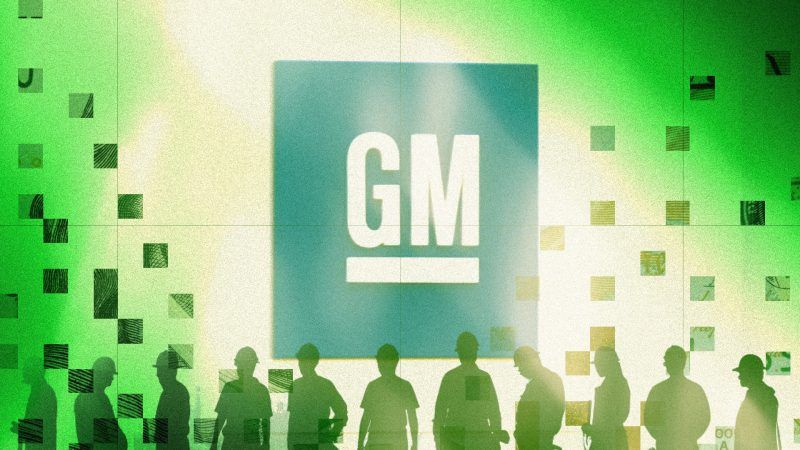G.M. To Lay Off 1,300 Michigan Workers Despite $824 Million in State Incentives
The bulk of the employees may be able to find work elsewhere within the company, but the state could still be on the hook for the promised cash.

State governments want to attract companies to do business within their borders. Lacking creativity, many lawmakers resort to just giving out cash, either directly through grants or indirectly in the form of tax credits. The high-dollar giveaways often come at great expense to taxpayers, especially when the promised benefits fail to materialize.
Earlier this month, General Motors (G.M.) notified the Michigan Department of Labor and Economic Opportunity (LEO) that it planned to lay off more than 1,000 of its Michigan employees in 2024. While that's troubling news for those 1,000 workers and their families, it's also a blow to Michigan taxpayers, from whom the state promised hundreds of millions of dollars in public incentives.
In January 2022, G.M. announced that it would spend $7 billion on four Michigan-based projects, including $4 billion to convert its existing Orion Township factory to make electric pickup trucks like the GMC Sierra E.V. In return, the state agreed to as much as $824 million in incentives for G.M., including $600 million in grants, $66.1 million for infrastructure improvements, and a tax break valued at $158 million. Orion Township also approved a property tax abatement on the facility for 12 years, plus three years for construction.
A press release from Gov. Gretchen Whitmer's office bragged that G.M.'s investment would "create 4,000 and retain 1,000 jobs," with the Orion Township overhaul expected to "create 2,300 jobs" and "retain 1,000 jobs" by itself.
But in the time since, the market for electric vehicles has shifted. In the face of softening demand, G.M. announced in October that it would "retime the conversion of its Orion Assembly plant to EV truck production to late 2025" instead of 2024 as originally planned.
Since that announcement, the company has further signaled its intent to lay off more than 1,300 employees.
Under Michigan's Worker Adjustment and Retraining Notification Act (WARN), employers are required to provide at least 60 days' notice of any plant closures or mass layoffs to employees, LEO, and local government. G.M. provided notice in October and December that it would be "laying off indefinitely" a total of 945 employees from the Orion Township facility in January.
On December 7, the automaker further provided notice that it would lay off 369 employees from two of its facilities in Lansing.
This does not necessarily mean 1,314 auto workers will be on the unemployment line: CNBC reported in October that in accordance with G.M.'s delayed timeline, "roughly 1,000 hourly workers" at the Orion Township plant would "have the option to transfer to other Michigan facilities" until the factory conversion was complete.
It's also possible that Michigan officials could claw back or postpone a portion of the incentives it previously promised. But in any event, a state government dangled more than $820 billion in taxpayer funds to influence the decisions of a multi-billion-dollar company.
The situation is all the more galling because of how officials spoke about the deal at the time. When Whitmer first announced G.M.'s investment and the state's contribution to the project, G.M. CEO Mary Barra said, "These important investments would not have been possible without the strong support from the Governor, Michigan Legislature, Orion Township, the City of Lansing, Delta Township as well as our collaboration with the UAW and LG Energy Solution," its partner at the time in building battery cell factories.
At the end of September, G.M. reported more than $25.2 billion in cash and cash equivalents. Even though it planned to spend $7 billion on its Michigan plants, Barra contended that the projects simply would not have been possible without $800 million in corporate welfare, an amount equal to just over 3 percent of the company's cash on hand.


Show Comments (25)